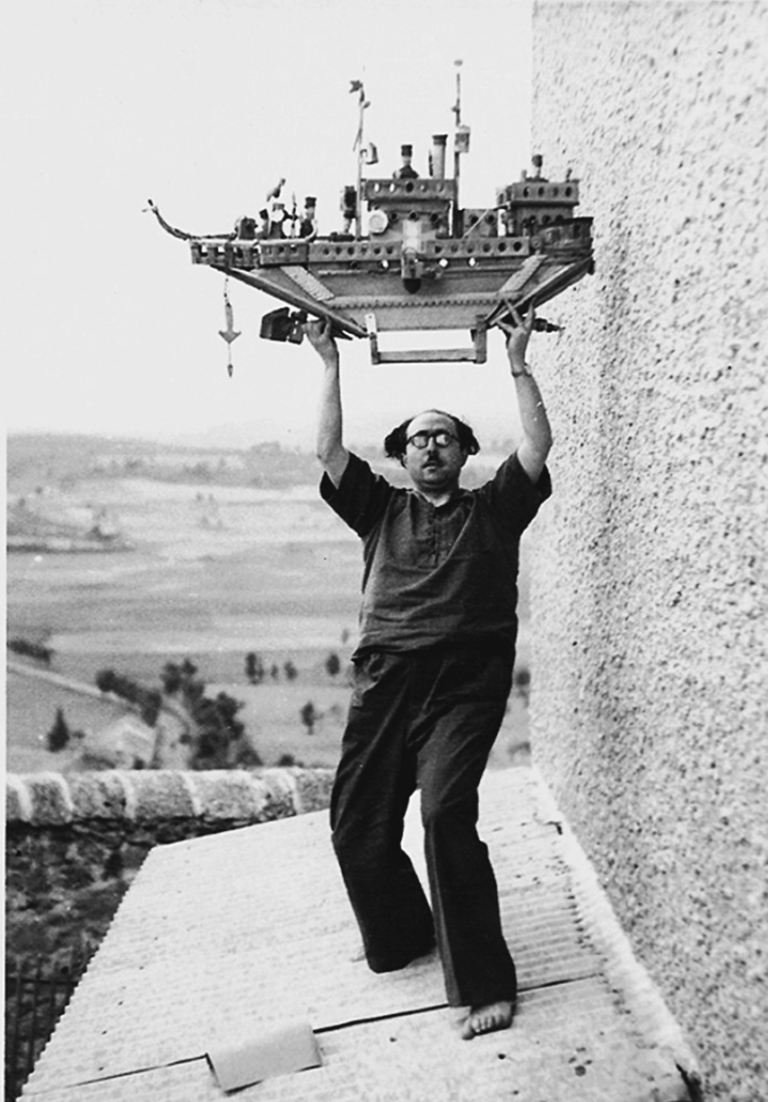The course introduces students to the institutional psychotherapy movement that challenged the medicalisation of mental illness and developed alternative practices and theories of mind since WWII. As a political and philosophical movement originated in between Catalonia and France, it crossed war resistance, decolonial struggles, philosophy, art, and eventually innervated into the anti-authoritarian movements of the 1960s and 1970s. The course reads (and obviously simplifies) a complex intellectual adventure throught the work of three figures: the Catalan psychiatrist and revolutionary Francesc Tosquelles, the German-Jewish neurologist Kurt Goldstein, and the French philosopher, militant and “schizoanalyst” Félix Guattari.
The course contextualises the legacy of institutional psychotherapy (and the focus of French thought, in particular, on the history of madness, schizophrenia, intellectual disability, and “deviant” sexual conducts) in an age, such as the present one, that is obsessed with the automation of rationality and the metrics of mental labour and social relations. It is argued that the rediscovery of this radical tradition can help assess the current outcomes of the automation of labour and of social relations, that are examplified respectively by AI and social media, and imagine a new critical epistemology, pedagogy and theory of mind as an alternative to the epistemology of automation.
The course helps students understand key concepts of the 20th century thought such as, for instance, cognitive catastrophe, which originated in German neurology and Gestalt theory, and deeply influenced Anglo-American cybernetics, French philosophy and eventually the conceptualisation of neuroplasticity (the capacity of the brain to reorganise itself especially after a traumatic event). The central thread of the course, however, is not the history of ideas, rather the role of practices, spaces, and institutions in the production of radical knowledge and projects of “disalienation.” As Camille Robcis (2021) has reminded us: “ One of the essential premises of institutional psychotherapy was the belief that theory and practice were inextricably linked—including in the treatment of psychosis.”
A credit certificate (Schein) is possible with credit in Media Philosophy. Students can a) make a project or deliver a presentation in class and write a short essay of ca. 10 pages, or b) write an extensive essay of ca. 20 pages. All materials will be shared via Dropbox.
The course is addressed to the students of all departments of HfG and universities in the region. It is also open to students, researchers and guests from other institutions and “the world as classroom” (bell hooks) trough the tools of the digital space.
Prof. Dr. Matteo Pasquinelli
mpasquinelli [∂] hfg-karlsruhe.de
Consultation hours on appointment
Enrolment: via email or Moodle
Mondays and Tuesdays, 15:00 – 17:45, biweekly
Course start: 24 October 2022
Room: 112 and online
Language: English
References
- Angela Melitoupoulus. Déconnage, 2011, 62m. → MACBA museum.
- “Madness, Media, Milieus. Reconfiguring the Humanities in Postwar Europe”, Freigeist Fellowship research project coordinated by Elena Vogman → Weimar University.

